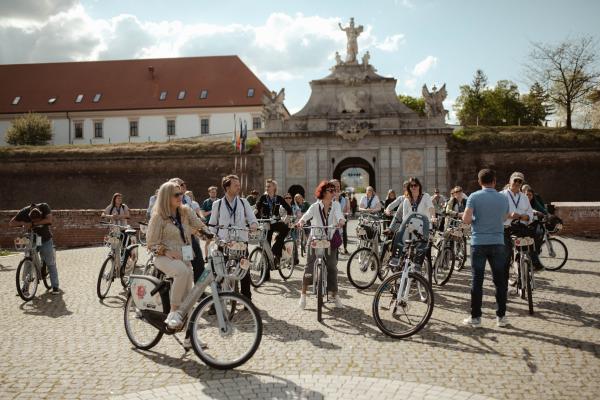
The art of collaboration: building sustainable urban futures at the EUI Peer Review #8
Call for Peer Reviews autumn 2025 will be open until the 18 November
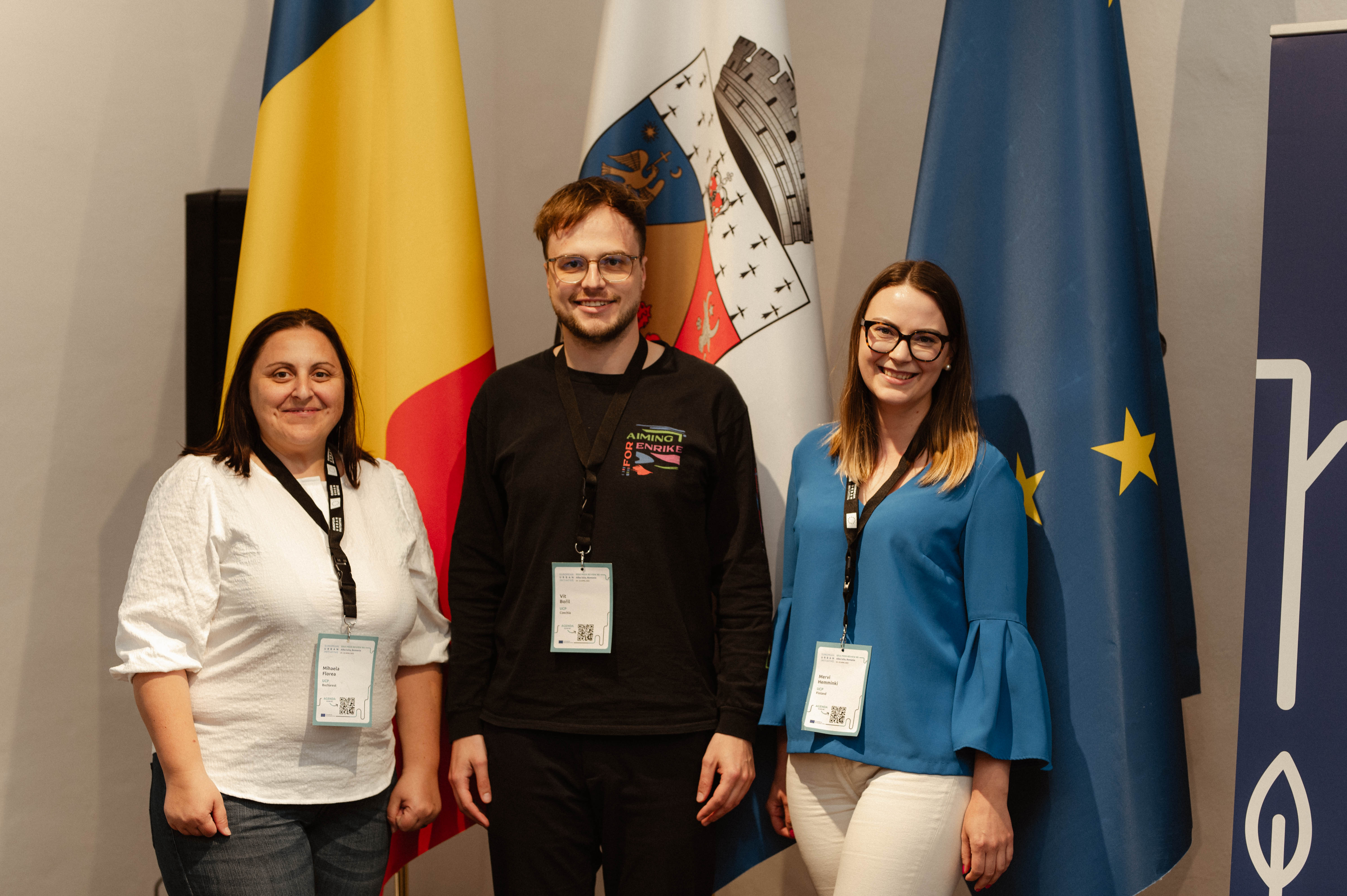
Mihaela (UCP Romania), Vít (UCP Czechia, and Mervi (UCP Finland) at the Peer Review event
During 24–25 April 2025, Alba-Iulia (Romania) hosted the 8th Peer Review event organised by the European Urban Initiative. Also known as ”the other capital of Romania”, this dynamic and future oriented city welcomed more than 60 participants representing fellow municipalities from Czechia, Estonia, Finland, Greece, Italy, Portugal, Romania and Spain. An enthusiastic team of 9 EUI experts accompanied the participants in their endeavour to find possible solutions for the most pressing questions on implementing, monitoring and evaluating their sustainable urban development strategies.
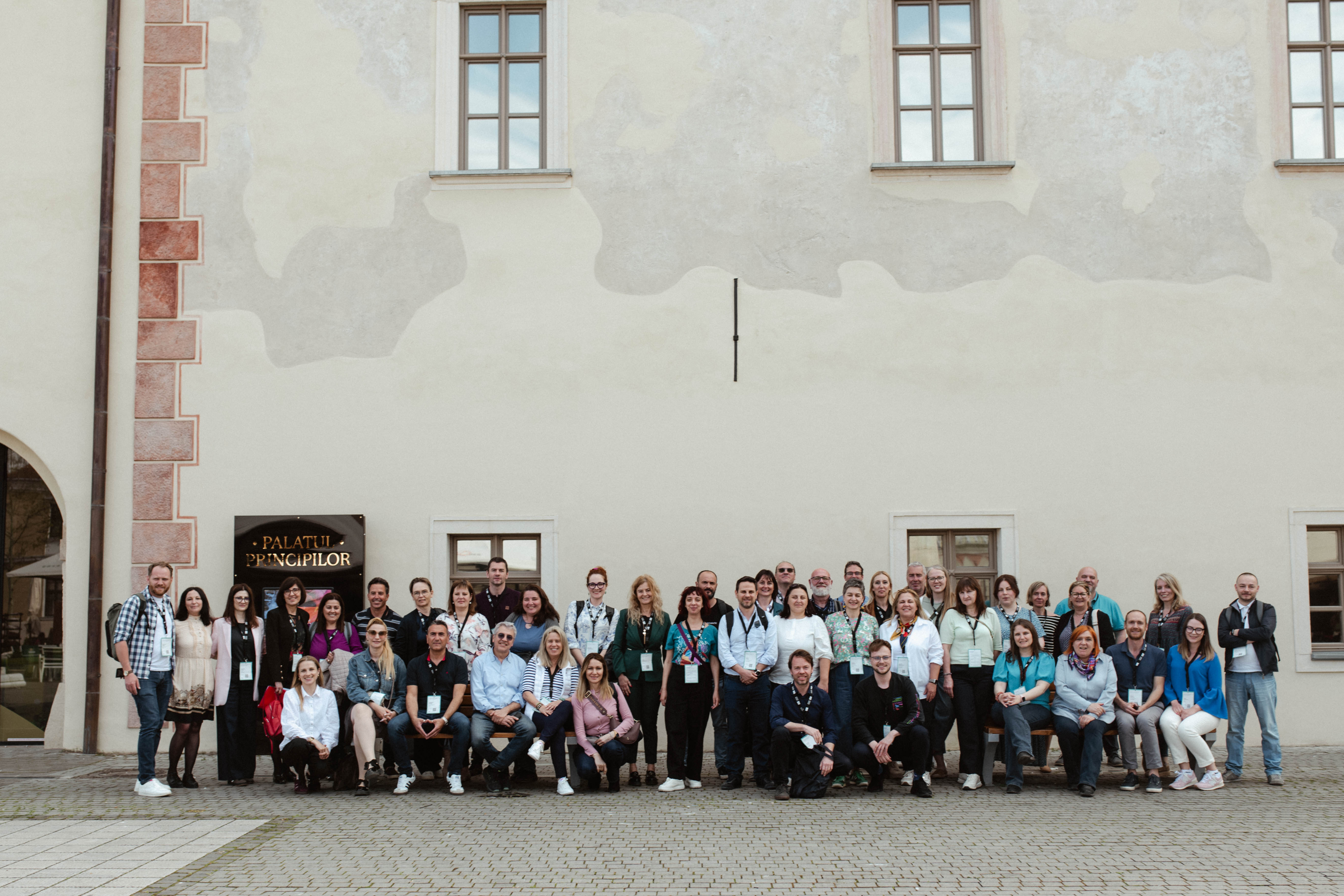
Pardubice’s journey towards the Peer Review event
Pardubice’s journey to the Peer Review event began after they heard directly from another Czech city, Ústí nad Labem, about their very positive experience as a “city under review” (CUR) in the previous round of Peer Reviews. Encouraged by this testimony, Pardubice decided to submit an application.
Once their application was approved, they proceeded with a self-assessment process using the SAT4SUD tool, This tool supports CURs in analysing their SUD strategy through the lens of the six building blocks, while keeping in mind the three main challenges identified by Pardubice in the application form. This allowed Pardubice to examine their strategy from multiple perspectives, including aspects that may not have been sufficiently emphasised during the strategy’s initial preparation or implementation. Before completing the SAT4SUD, Pardubice consulted its pre-final results with the Czech UCP. While this is not really a mandatory step, it proved beneficial – both for Pardubice and, even more importantly, for the Czech UCP.
“The consultation helped me better understand not only the three challenges identified by Pardubice – which is essential for the Peer Review process – but also the broader and more complex set of tasks that the strategy team in Pardubice is expected to tackle during this programming period,” notes Vít, UCP Czechia.
The results of the self-assessment helped Pardubice refine their three guiding challenges and reframe them into three concrete questions – one of which was later merged into a broader question common to all CURs. These questions served as the main input for the background paper, which is the key output each CUR must prepare before the Peer Review event. It is also important to mention the role of the two EUI experts, who provided feedback on the background document, coordinated the whole preparation process and later moderated the discussions between the CURs and peer reviewers during the event itself.
The finished background paper was first reviewed by the peer reviewers from Sibiu (RO), Padova (IT), Dos Hermanas (ES), Rome (IT), and Kavala (EL), and then discussed during an online preparatory meeting between the CUR, peer reviewers, and EUI experts. During this meeting, the peer reviewers ensured they fully understood the specific context and needs of the Pardubice case, which later enabled them to provide informed in-person feedback in Alba Iulia. Moreover, the meeting already provided Pardubice with initial insights into how to deepen stakeholder cooperation in the Hradec–Pardubice agglomeration.
“I was genuinely impressed that already at the online preparatory meeting, the peer reviewers showed a high level of engagement and a strong willingness to understand the specific context the Pardubice team is working in.” adds Vít, UCP Czechia.
At the end of the whole preparatory phase, the Pardubice team was ready to explore their questions in greater depth at the upcoming Peer Review event.
What happens in Peer Reviews?
The Peer Reviews are five-step process, inspired from a methodology designed by the Joint Research Centre of the European Commission. They bring together "cities under review" (CUR) ("Article 11 cities" receiving ERDF support for their SUD strategy), working with "peer reviewers" from other EU urban authorities who bring practical experience and insights from addressing similar challenges in their own contexts.
Supported by the EUI experts, the participants take part in specific activities, corresponding to each major stage: confirming the scope, identifying and matching peers, participating in the Peer Review event, and meeting again for follow-up.
The grande finale: two and a half days of meetings and site visits in beautiful Alba Iulia
After the preparatory phase the four CURs and their peer reviewer cities meet in person in the host city. Diving into more details, the agenda of Peer Review #8 event facilitated deep engagement and practical application of specific urban development tools. For Alba Iulia, the host city, the motivation for the participation in the Peer Review process stemmed from the willingness to establish effective systems for tracking progress and ensuring that strategic objectives are met. Alba Iulia municipality sought to advance its urban planning, moving from a vision confined to its administrative borders to a broader functional urban area perspective. To achieve this, they formulated key questions for their peer reviewers. Working alongside peers from Spain, Czechia, Italy, Greece, and Romania, discussions centered on optimizing cooperation processes, clarifying the roles of metropolitan stakeholders, and determining the best approaches for monitoring and evaluating integrated development strategies across local and metropolitan scales.
Dedicated sessions were held for each of the three questions, allowing peer reviewers to delve deeper into context and showcase solutions from their own cities. This open sharing of lessons learned was invaluable for the CUR, enabling the representatives from Alba Iulia to create a practical "do's and don'ts" guide and pinpoint the most impactful activities for prompt implementation as a direct result of the Peer Review event.
”I was impressed by the openness, creativity and the thorough documentation of the peer reviewers. Each one gave 100 % in finding solutions, in a nurturing non-judgmental environment, carefully supervised by the EUI experts. It was a living proof that in EUI Peer Reviews professionalism, creativity, implication, empathy and humor go hand in hand,” says Mihaela from Romanian UCP.
In a separate session, the groups were mixed and discussed how to ensure inclusive, sustainable and impactful stakeholder involvement and Public Private Partnerships in developing, governing as well as funding and implementing SUD strategies and projects, which were common themes shared by all the CURs.
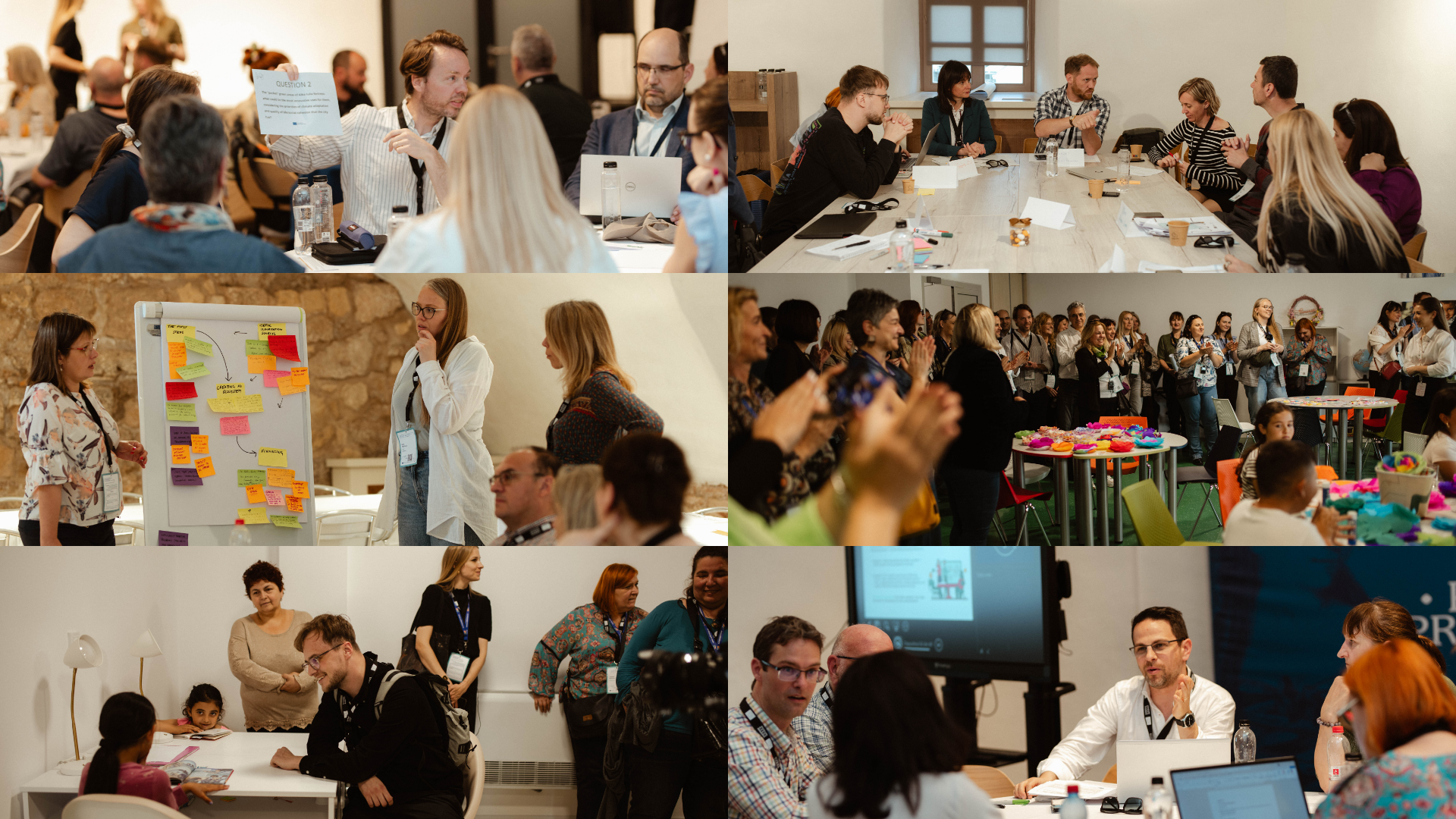
Alba Iulia, as the host city, faced the challenging task of proposing activities that would not only highlight its deep-seated history and unique ”personality”, but also effectively emphasise the proactive engagement of its local stakeholders in building a modern, green, and dynamic urban environment. In this respect, the study visits showcasing sites like the Dendrological Park, Gheorghe Sincai Multifunctional Center, Transilvanian Princess Palace, the urban garden, and Alba Carolina Fortress, provided valuable insights. All participants had the chance to admire the natural surroundings of the city, experience a biking tour in the citadel or simply listen to wonderful songs of the children that attend the courses in the multifunctional center. And, on a personal note, some of the participants deserve an additional reward, for overcoming their fears and experimenting new things. The observations of the peer reviewers were instrumental in formulating inspiring suggestions for strengthening relationships with investors and to become a dynamic hub attractive to businesses and young talents.
“We were all very impressed by the beauty of Alba Iulia. The study visits gave us valuable insights about the host city's challenges and best practices. It was also important to have more relaxed time together to network and have more in depth discussions with other participants.“ say both the Finnish and Czech UCPs.
The beauty of Peer Reviews: discover best practices, build lasting networks, and elevate your city on the european stage
Peer Reviews are more than just feedback sessions – they are gateways to collaboration, innovation, and visibility for cities across Europe.
In addition to receiving tailored feedback on their Sustainable Urban Development (SUD) strategies, CURs gain access to a rich exchange of ideas, experiences, and practical solutions. It’s not only about best practices – it’s about learning from real-life successes and setbacks and avoiding mistakes others have already made.
”The best part of Peer Reviews is that the CURs receive detailed feedback and ideas from top European experts in sustainable urban development.” says Mervi, the Finnish UCP.
European cities often face similar challenges, from climate resilience to inclusive growth. That’s why peer learning is so powerful: it turns shared challenges into shared progress.
“It is astonishing how many common features might share cities separated by considerable distances. It is equally wonderful to see how sharing ideas and experiences contributes to innovative solutions building” says Mihaela, the Romanian UCP.
Importantly, cities don’t need to be underperforming to take part. Many join simply to gain fresh perspectives, peer support, and renewed inspiration for their urban strategies.
“In this regard, Alba-Iulia, the host city, is an illustrative example. This middle sized Transilvanian municipality was multiple awarded at European and national levels for its innovative approaches in fields such as urban tourism, social inclusion, greening and digitalisation. The local administration is at the frontrun among Romanian beneficiaries for the use of European funds, joining public and private stakeholders to act together for the benefit of the entire community. However, the city is aware that progress means constant change and alignment to European and national developments. Therefore, its representatives are willing to openly discuss what could be done better, faster or in a more sustainable way. The world is moving, and the performing cities have to keep the pace” states the Romanian UCP.
Peer Review events offer ample time for networking and deep-dive discussions on the specific challenges of the CURs. Participants build meaningful relationships that often extend far beyond the event itself. A single meaningful conversation at a Peer Review event can open the door to valuable insights on EU initiatives and funding opportunities.
“There is a good balance between work and fun – EUI experts help CURs formulate their action plans and write a report on the event which leaves CURs enough room to network and enjoy the event as well,” says Mervi from Finnish UCP.
Peer Reviews put the city under review in the spotlight, but they also offer all participants a chance to showcase their city’s achievements. In particular, the host city gains significant visibility by organizing site visits and evening programs.
"Take the CUR Smiltene as an example – this town of under 6,000 residents gained remarkable visibility through the event, significantly expanded its knowledge of EU funding opportunities, and built valuable new networks,” adds Mervi from the UCP Finland.
Why participate in a Peer Review?
- Improved strategy: Structured self-assessment helps cities identify and strengthen key areas in their SUD strategy.
- Expert support from peer cities and professionals: Access to tailored feedback from leading European cities and sustainable urban development experts.
- Mutual learning: All participants—both reviewed cities and reviewers—gain new insights and deepen their expertise.
- European visibility: Raise your city’s profile and connect with the broader EU urban development community.
- Networks & knowledge: Build lasting relationships and learn from seasoned EU urban development experts.
- Career opportunities: Peer experts can internationalize, grow professionally, and join EUI’s expert pool.
- Financial compensation: Peer city experts receive €350/day for their contributions.
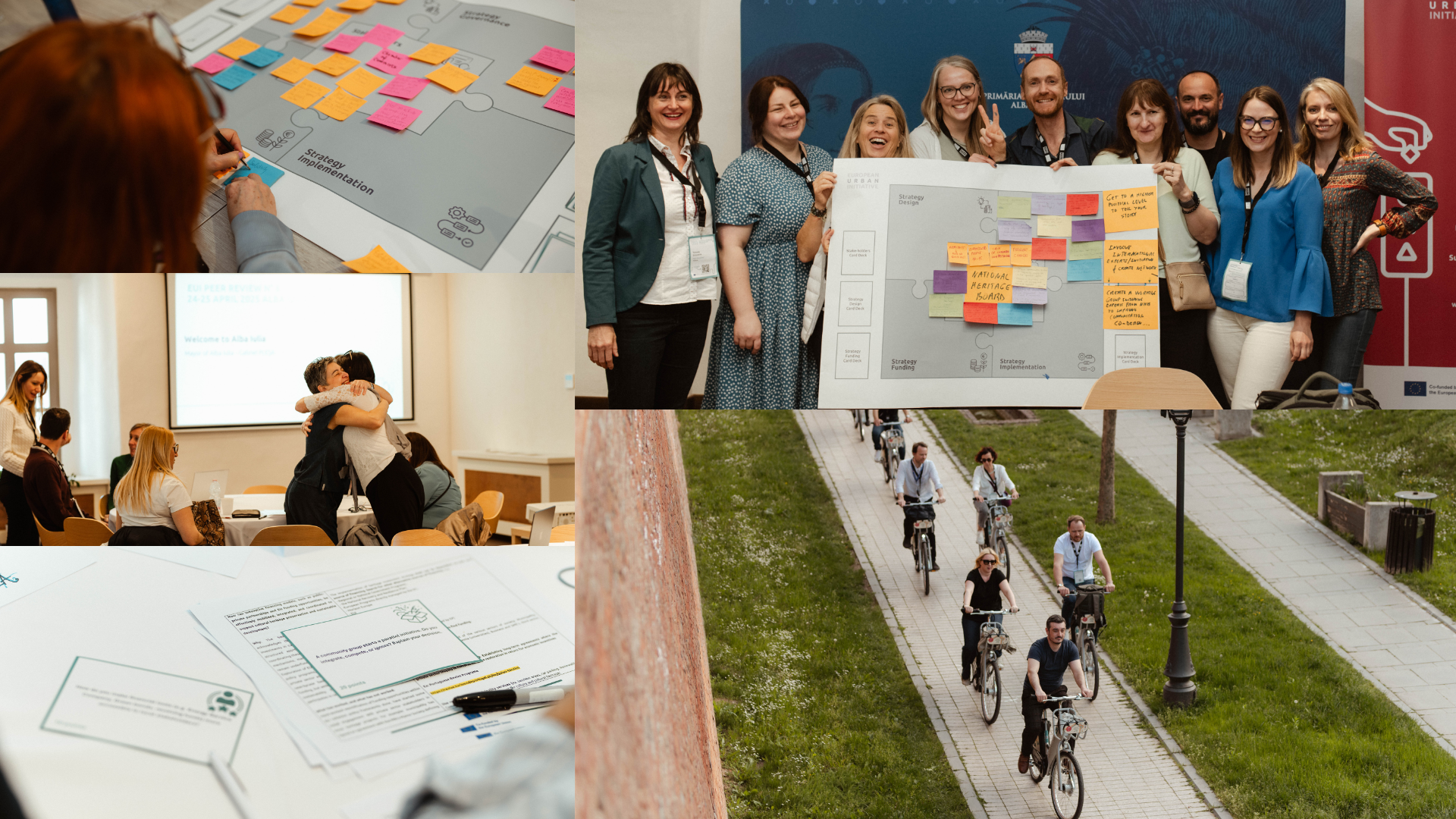
Watch the following video material for more insights on the study visits:
